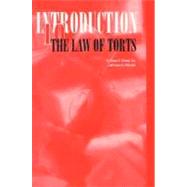
Thomas B. Alleman, a litigation shareholder at Winstead Sechrest & Minick PC., Dallas, Texas, received a BA from Williams College in 1974 and a JD from Washington University in St. Louis in 1977. He has served as an adjunct faculty member in the Public Administration Programs at Avila College in Kansas City, Missouri, where he taught courses in torts, constitutional law and litigation. In 1996, he was selected as an adjunct faculty member at the Center for Environmental Studies at Williams College. He is the author of numerous articles on subjects in tort and insurance law and is a frequent speaker to professional and trade, groups din these areas.
Mr. Alleman is married to Susan Alleman and has three children, Sarah, Virginia and Sam.
Frances Beall Whiteside is editor of the National Paralegal Reporter, published by the National Federation of Paralegal Associations (NFPA). A practicing paralegal for 14 years, she has been an adjunct instructor in three paralegal studies programs in Dallas and Fort Worth, Texas. She holds MLA and BA degrees from Southern Methodist University and a paralegal certificate from California State University at San Bernardino. She has previously co-authored two other books for Pearson Publications Co., Introduction to Contracts, now in its fourth edition, and Introduction to Business Organizations, now in its second edition. She may be reached at editor@paralegals.org.
The New copy of this book will include any supplemental materials advertised. Please check the title of the book to determine if it should include any access cards, study guides, lab manuals, CDs, etc.
The Used, Rental and eBook copies of this book are not guaranteed to include any supplemental materials. Typically, only the book itself is included. This is true even if the title states it includes any access cards, study guides, lab manuals, CDs, etc.